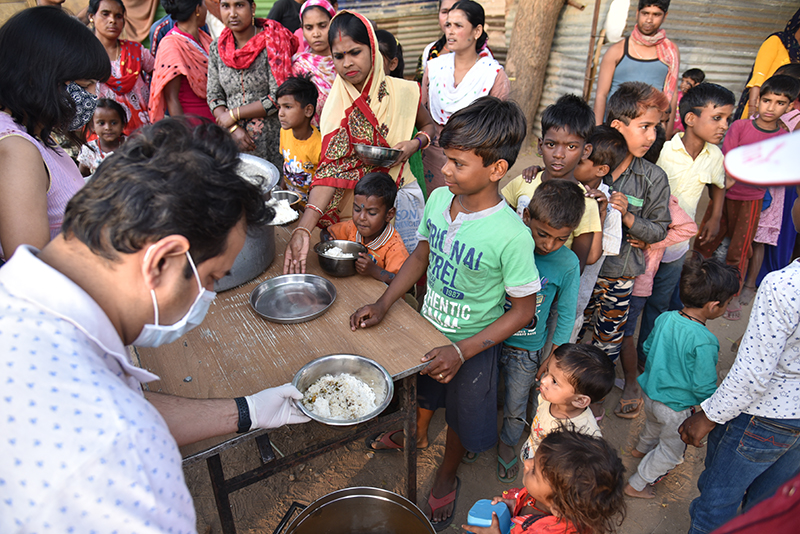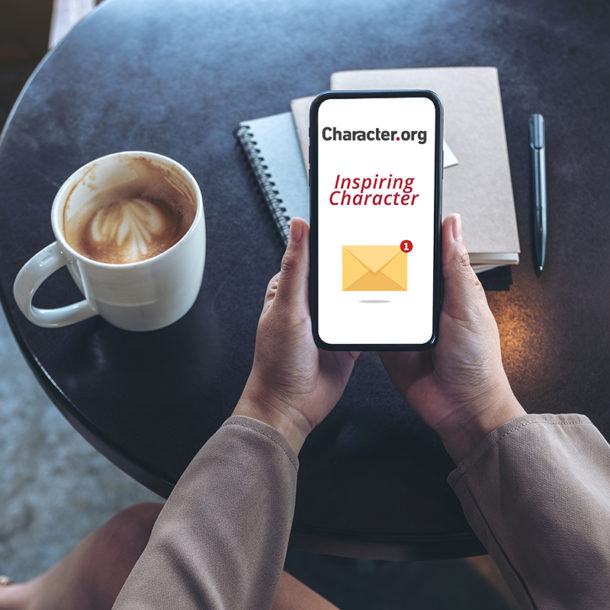Dr. Arthur Schwartz
President
Character.org
Note to reader: This is the first in a new blog series on questions that are helping to shape and direct the work of Character.org. At the end of this short post I pose 5 Questions. If one of these questions sparks your imagination, I hope you will share with me your ideas. I’m eager to learn.
It all started when I was reading David Brooks’ recent op-ed in the New York Times. He described a recent conversation he had with Eugene Rivers, a prominent Black Pentecostal who has been working to bring white and Black Pentecostals together. Rivers shared with Brooks that “you cannot have a rational discussion of evil outside of agape love – the kind of self-surrendering love for others that is supposed to be at the heart of the Christian life.”
I immediately stopped reading, took a breath and asked myself: when was the last time I showed self-surrendering love for others? Not an act of kindness, generosity or compassion…but self-surrendering love? I couldn’t think of a specific time or moment.
For the next two hours I went down the rabbit hole to more deeply understand the meaning and practice of agape love. Martin Luther King, Jr. wrote that agape love is an “overflowing love which is purely spontaneous, unmotivated, groundless, and creative.” He adds that agape love “springs from the need of the other person – his need for belonging to the best in the human family.”
In his book The Four Loves, C.S. Lewis describes the love we have for family as the most natural sort of love — especially the love of a parent for a child (storge). There is also the love we have for close friends (philia) and the mesmerizing power of romantic love (eros). The fourth love that Lewis describes is agape love.
This past week I’ve been reflecting on these “four loves.” While my love for my wife and two children is unconditional and a source of tremendous joy, I did struggle in my 30s and 40s to practice the virtues of friendship. Looking back, I think it was because I became far too focused on forging my identity and commitments as a husband, father and professional. More recently, I have worked hard to re-connect with friends whom I deeply love.
Yet the highest expression of love (agape) remains for me more an ethereal concept than a consistent practice. My professional life is not focused on attending to the sick nor do I volunteer my time on a regular basis to support and lift up those who are “the last, the least, and the lost” among us.
Even my own Jewish faith commands me to “love the stranger.” Yet, if I’m honest with myself, this call to “love the stranger” has eluded me (though I do strive to “love thy neighbor,” especially the elderly couple who live next door).
The more I read about agape love the more I begin to grasp that this form of love involves us committing our time and talents to create Dr. King’s beloved community. A future in which there is an absence of poverty, hunger, or hate.
Agape love also involves the practice of radical forgiveness. My friend and Character.org board member Scarlett Lewis started the Choose Love Movement after her six-year-old son Jesse was murdered at Sandy Hook Elementary. Several days after the tragedy, still in the depths of her grief, Scarlett noticed that Jesse had written on the kitchen chalkboard the words “Nurturing Healing Love.” Six-year-old Jesse seemed to intuitively grasp and express the power of forgiveness and the promise of agape love.
At Character.org, we think of character as knowing the good, desiring the good, and doing the good. Head. Heart. Hands.
Here’s my struggle: While my “head” knows that agape love is the highest form of love – my “heart” and “hands” remain mostly silent to this self-surrendering call to action.
Do any of you share this same gnawing thought and feeling? Let me know in the comments below.
5 questions about agape love:
- How can I begin to practice agape love?
- How can parents and families practice and model agape love?
- Developmentally, is there an age when young people should be encouraged to practice agape love?
- How can teachers and educators model and nurture agape love (perhaps via the school’s commitment to service learning)?
- What does agape love look like in the workplace?







Thank you. I’m a retired counselor/psychologist from a character education school. The work changed my life and all the people who worked in our school for more than 20 years. Now I’m an “engaged” retired citizen watching grandchildren grow and so deeply grateful for those working hard now to do the work most doing–building a humane society and culture. I continue to work on “finding my ways . . . . . .” through those lovely grandchildren and my own grown “children.”
Arthur, when Dr. Tom Lickona was on my dissertation committee to construct the Character Growth Index, we had many deep discussions about assessing love. The struggle was real!
Paul the apostle lists the fruit of the Spirit in the Bible book Galatians 5: 22,23. The first one is agape, followed by joy, peace, patience, and 5 more. Some Christian theologians have said that what Paul meant was that the fruit of the Spirit is Love: (expressed as) joy, peace, patience, etc. Love is all-encompassing as a character strerength. If we grow in one strength, we grow in love.
I love that you take the time to think these deep thoughts, self reflection and have the courage to see room for improvement. Sometimes the issue is loving ourselves first. We have to remember that love as a thoughtful response is a choice. That helps me.